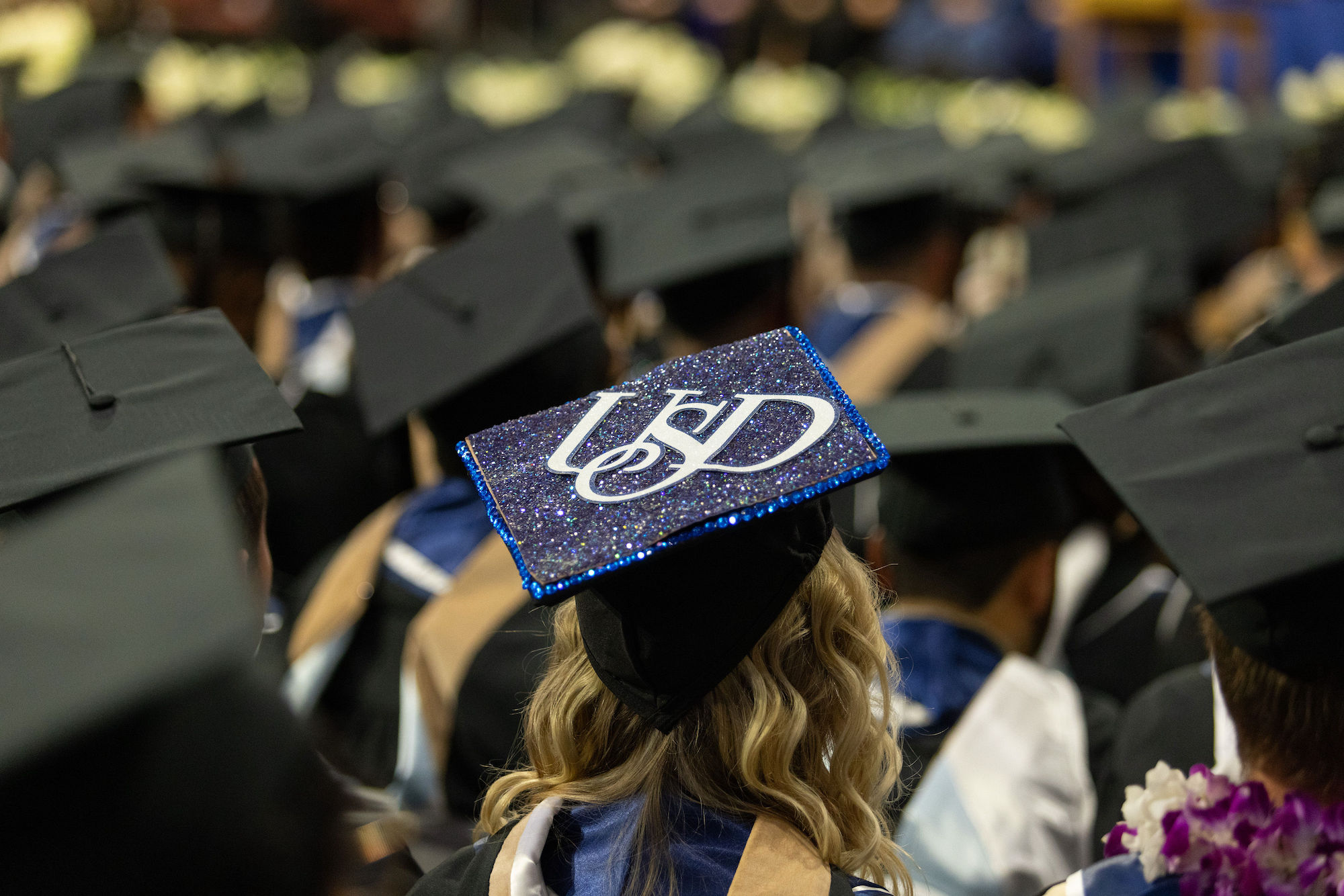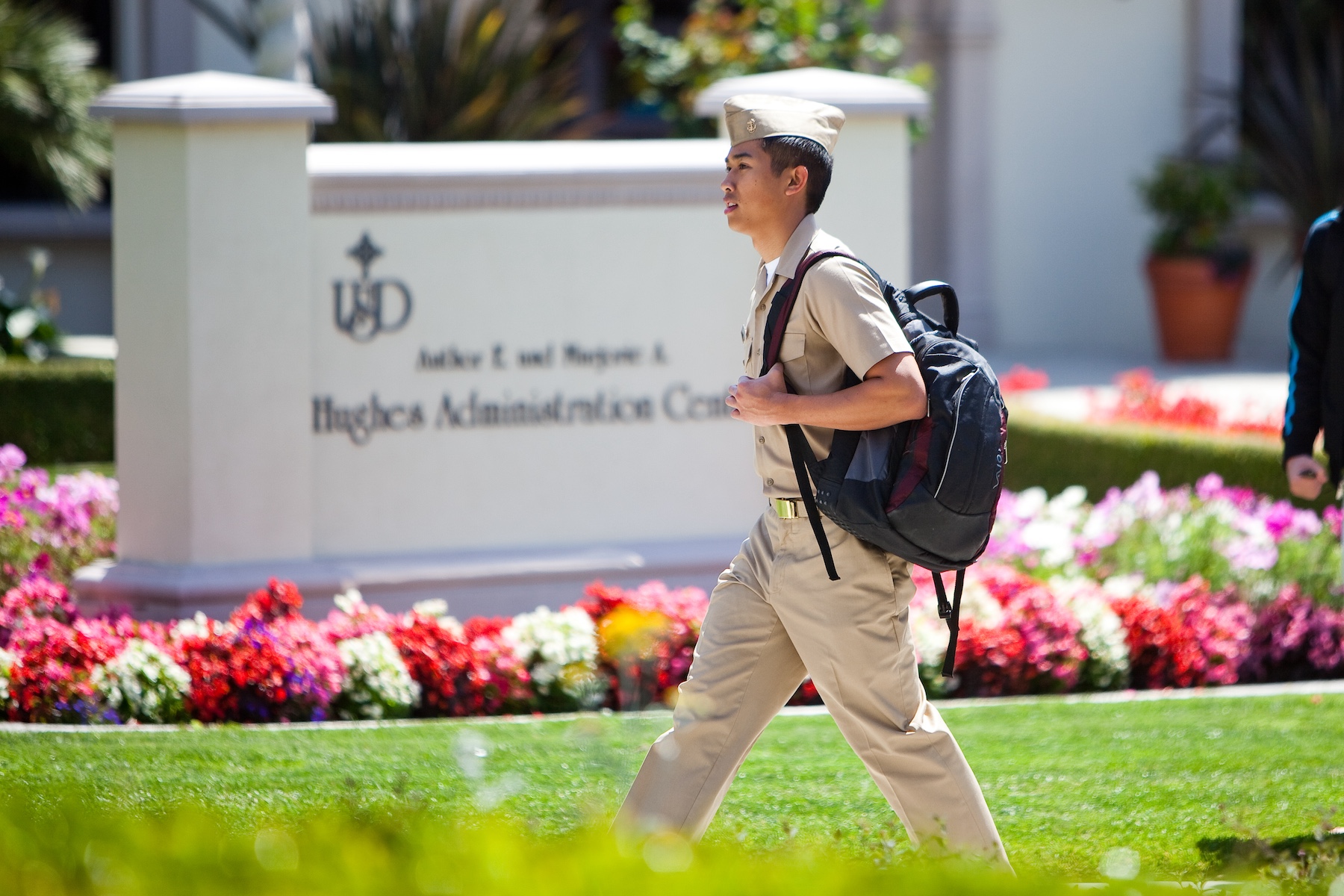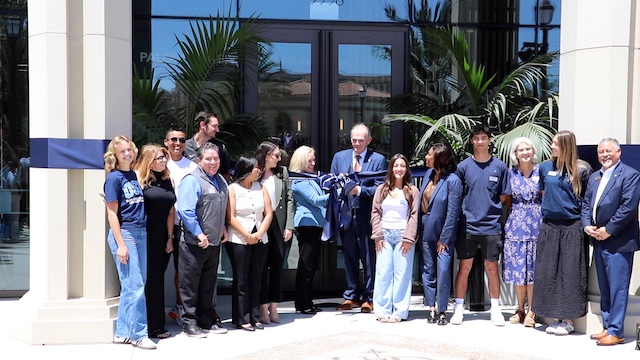Physics Professor Ryan McGorty Receives Cottrell Scholar Award
“How can we control and manipulate matter, and what are the mechanisms biological systems use to do so? These questions drive research across many fields, but particularly in the field of soft condensed matter where small perturbations, thermal fluctuations even, can alter structure,” notes Ryan McGorty, assistant professor of physics and biophysics at the University of San Diego.
McGorty is a fan of “squishy physics.” Also known as soft condensed matter, the classification includes such everyday stuff as hair gel, shaving foam, toothpaste, yogurt and frosting. “Soft materials do not just surround us – most living things are soft or gooey. The complexity of these materials -- they are not readily classifiable as solid or liquid or gas -- and their ubiquity make them fascinating and worthy of study,” he says.
McGorty recently received a Cottrell Scholar Award from Research Corporation for Science Advancement to manipulate a soft matter system comprised of temperature-responsive colloidal particles and of polymers (long-chain molecules) through flow and through in situ changes to colloid volume fraction.
To conduct this study, he and his student associates will develop a light-sheet “rheoscope,” capable of acquiring optically sectioned images of samples under shear, McGorty says. The term “rheo” refers to flow. Essentially, McGorty and his students will be building a special type of optical microscope.
If successful, their work would improve our understanding of the structure of soft materials in the presence of flow. Such knowledge is important in the processing of industrial or consumer materials and in understanding how biological materials are affected by flow.
There is also an education component to the Cottrell Scholar Award. McGorty will complement his project to build and use a novel light-sheet “rheoscope” with the creation of a course where lower-division undergraduate students are charged with designing and constructing optical tools. Students will design optical instruments with the goal of making research tools accessible and democratizing science. “This course will provide our students with an authentic research experience. Moreover, the social benefit of accessible scientific tools will be stressed to students to promote interest in science and ownership of their projects,” he says.
Research Corporation for Science Advancement (www.rescorp.org) was founded in 1912 and is the second-oldest foundation in the United States (after the Carnegie Corporation) and the oldest foundation for science advancement. Research Corporation is a leading advocate for the sciences and a major funder of scientific innovation and of research in America’s colleges and universities.
About the University of San Diego
Strengthened by the Catholic intellectual tradition, we confront humanity’s challenges by fostering peace, working for justice and leading with love. With more than 8,000 students from 75 countries and 44 states, USD is among the Top 20 Best Private Schools for Making an Impact according to The Princeton Review. USD’s eight academic divisions include the College of Arts and Sciences, the Knauss School of Business, the Shiley-Marcos School of Engineering, the School of Law, the School of Leadership and Education Sciences, the Hahn School of Nursing and Health Science, the Joan B. Kroc School of Peace Studies, and the Division of Professional and Continuing Education. In 2021, USD was named a “Laudato Si’ University” by the Vatican with a seven-year commitment to address humanity’s urgent challenges by working together to take care of our common home.
Contact:
Liz Harman
eharman@sandiego.ed
(619) 260-4682



